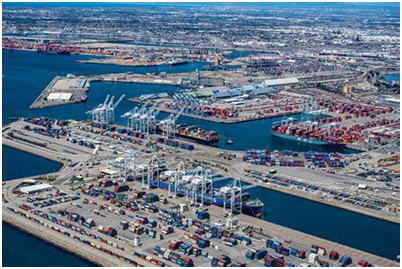
The Port of Baltimore is the busiest in the U.S. for handling cars and light
trucks…With access to the Port of Baltimore cut off by the collapsed Francis
Scott Key Bridge, cargo is expected to be diverted to nearby ports, including
the ports of Virginia and New York/New Jersey.
In terms of container traffic, New York/New Jersey
leads the northern part of the US East Coast with 59% of the throughput,
according to Drewry. Virginia’s Hampton Roads terminals, primarily Norfolk
International Terminal and Virginia International Gateway, handle about 25%, followed
by Baltimore at 9%, and Philadelphia at 6%. The remaining traffic goes to
Boston, Wilmington (Delaware), and other smaller terminals.
Drewry’s recent Port Throughput Forecast for North
America shows a potential growth of +10.6% YoY for 2024. If Baltimore’s
capacity is removed and its container volume is allocated across NY/NJ,
Philadelphia, and Hampton Roads terminals, the average utilization rates in
2024 could reach as high as 79%. This
high utilization, if sustained, could lead to terminal congestion, especially
if the increase in utilization happens within a short period, Drewry says.
Moreover, Drewry says
pre-berthing waiting times, an indicator of overall terminal congestion,
suggest that supply chains in this market may come under strain. In 2023,
despite additional capacity and reduced volumes, waiting times in Baltimore and
New York ports have only recently been controlled, averaging 0.2 day in
February 2024. Meanwhile, in the Hampton Roads terminals, which had the highest
utilization in 2023, waiting times remain at 0.5 day. The upcoming months may see these gateways put to the test.